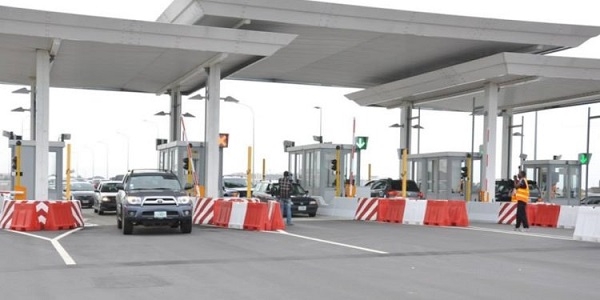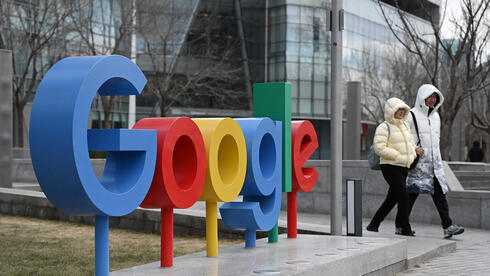Which Companies Will Raise Prices Due to Tariffs? See the List
With the Trump administration's tariff policy now in effect, shoppers are likely finding it more challenging to avoid nationwide price hikes.
Currently, a 10% “baseline” tariff on all foreign countries is in effect. This means all goods coming into the United States are subject to a higher rate, which could result in higher costs for consumers.
For about 60 countries, President Donald Trump has threatened to impose a “reciprocal higher tariff,” which would go into effect after a 90-day pause for negotiations, ending in July.
With manufacturing set overseas for a number of U.S. companies, the tariffs are impacting a variety of industries, including retail, technology and automobiles, among others.
Here's a breakdown of how tariffs could impact everyday consumers and what price increases they should anticipate.
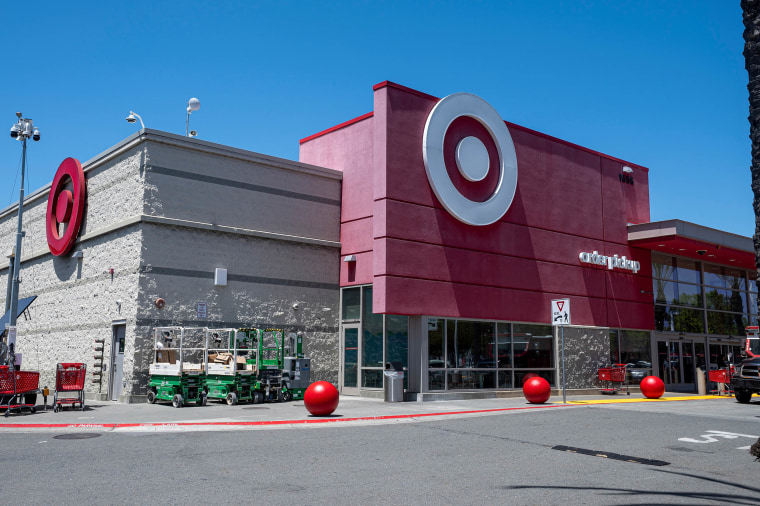
On April 5, Trump's imposed 10% tariff on all foreign countries, aside from China, went into effect. The U.S. and China have been in a tit-for-tat trade war, but reached a tentative agreement May 12 that ultimately cut “reciprocal” tariffs to a total of 30%.
Despite the agreement, the various layers of tariffs already implemented during the trade war have pushed up the costs of imported retail goods “much higher than the 30%,” CNBC reports.
On May 23, Trump threatened the European Union with a 50% tariff that could go into effect as soon as June 1, according to NBC News.
As the U.S. continues talks with foreign countries about tariffs, some companies are already feeling the effects of the ones that have been implemented, which are raising their costs.
While some some retailers are still weighing their options, which includes hiking up their prices in store, other companies, like Amazon and Home Depot, have said that since their consumer spending hasn't declined, they may not need to pass on their costs to the consumer.
After reporting lower earnings in May, Target will likely raise prices due to tariffs. Target Chief Executive Officer Brian Cornell told CNBC in March that the company is attempting “to protect pricing,” but that the cost of produce is expected to increase.
Target Chief Commercial Officer Rick Gomez told CNBC that the retailer plans to keep the flat $5 rate for T-shirts, though that could lead to a hike in the prices of other clothing items.
Walmart expects to issue tariff-related price increases by the end of May and “much more” in June, the retailer’s CFO John David Rainey told CNBC.
“We’re wired for everyday low prices, but the magnitude of these increases is more than any retailer can absorb,” he said. “It’s more than any supplier can absorb. And so I’m concerned that consumer is going to start seeing higher prices. You’ll begin to see that, likely towards the tail end of this month, and then certainly much more in June.”
Adidas is expected to hike the cost of its sportswear and products due to the higher tariffs, according to CNBC. Adidas noted that the ongoing negotiations won’t allow the company to make any final decision on how much prices will increase.
Procter & Gamble, the company behind products like Crest toothpaste, Tide detergent, Tampax feminine care products and Charmin toilet paper, is being forced to raise prices, despite attempting to avoid the tariff’s effects.
P&G’s CFO Andre Schulten said an April earnings call that shoppers will likely see increased prices by July.
Best Buy anticipates increasing prices due to the new tariffs issued, said the company’s CEO Corie Barry during the company’s Q4 earnings call.
“The consumer electronics supply chain is highly global, technical, and complex. China and Mexico remain the No.1 and No. 2 sources for products we sell, respectively,” Barry said. “While Best Buy only directly imports 2% to 3% of our overall assortment, we expect our vendors across our entire assortment will pass along some level of tariff costs to retailers, making price increases for American consumers highly likely.”
Toy company Mattel, responsible for the production of Barbie and Hot Wheels, is facing a 40% tariff on its products created and imported out of China, NBC News reported.
Mattel CEO Ynon Kreiz said that the company has been considering moving Chinese production, where it makes around 40% of its toys, but doesn't anticipate it will be able to move its manufacturing to the U.S., NBC added.
“That’s OK, let him go, and we’ll put a 100% tariff on his toys, and he won’t sell one toy in the United States, and that’s their biggest market,” Trump said in remarks from the Oval Office, per NBC. “I heard that, I mean, I watched this guy talking about how I’m going to go counter. I said, ‘Well, I wouldn’t want to have him as an executive too long.’”
Mattel CEO Ynon Kreiz said the company has been moving production out of China over the past seven years, but has noted he doesn't see it moving to the U.S. anytime soon.
“We believe that production in other countries, where we can be efficient and more productive, is the best balance between manufacturing outside of the U.S. and continuing to develop products in terms of design and creativity in America,” Kreiz said on CNBC, per NBC.
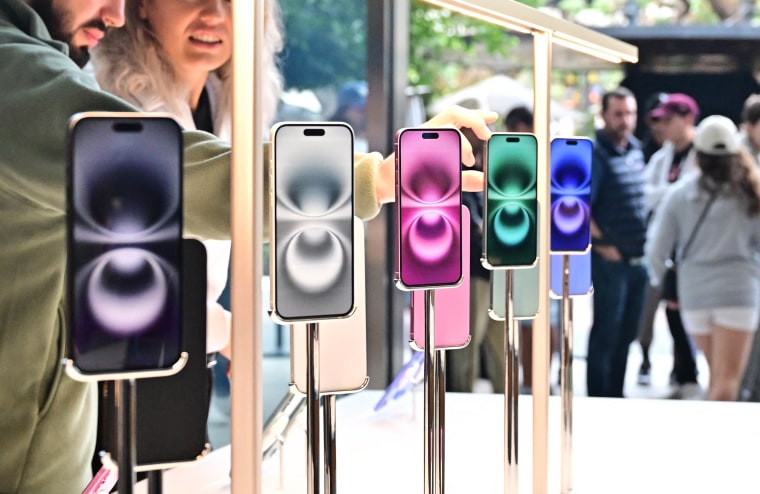
In May, Trump threatened to impose “at least” a 25% import tax on Apple — which produces most of its hardware overseas, importing from China, India and Vietnam — should the tech giant not start making products domestically.
Trump wrote in a post on Truth Social that he had “long ago informed Tim Cook of Apple that I expect their iPhone’s that will be sold in the United States of America will be manufactured and built in the United States, not India, or anyplace else.”
Apple has not yet revealed whether the company plans to move forward with tariff-related price increases.
Trump clarified that any tariff imposed on Apple, which could be implemented by the end of June, would also apply to technology companies like Samsung and “any other company that makes that product.”
Samsung has yet to reveal their plans for the tariff-related costs, but like Apple, industry analysts suggest that consumers could face up to a 40% increase.
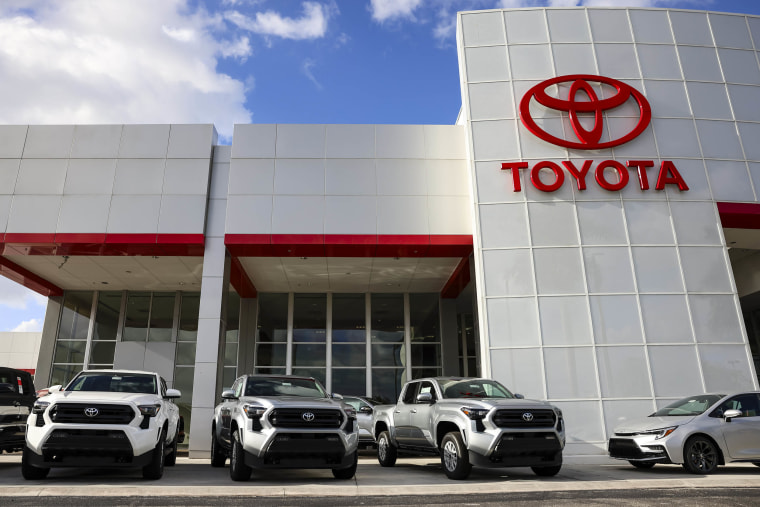
The automobile industry has not been immune to Trump's tariff measures. The U.S. has placed a 25% tariff on all vehicles imported into the country and also announced an additional 25% tariff was implemented on steel and aluminum.
Trump's executive order placed another additional 25% tariff on auto parts, which went into effect May 3. If the foreign auto parts were used during U.S. assembly, however, the product could potentially qualify for partial reimbursements on the levies in two years.
While manufacturers have already felt the economic effects, most automakers haven't publicly revealed whether U.S. auto tariffs will impact consumer prices.
The cost of a new vehicle, which currently sells for an average of approximately $48,000, could increase by $10,000 should the cost of tariffs be passed on to consumers, according to Bank of America's estimation as reported by CNBC.
Japanese automakers like Toyota, Honda, Nissan, Mazda and Subaru, which frequently importing into the U.S., could see their economic growth cut in half this year, according to a New York Times report.
In April and May alone, Toyota predicted a $1.3 billion loss due to the newly imposed auto tariffs, per the New York Times. Toyota CEO Koji Sato said the impact on vehicle prices is “very difficult to forecast” at this time.
In an effort to mitigate the effects of the tariffs, Honda announced in May that they plan to move production of its CR-V compact SUV from Canada to the U.S.
Following auto tariffs taking effect, the New York Times reported in April that Nissan has been considering transferring a portion of the maker's domestic production of the car model Rogue to the U.S.
Mazda and Subaru also import into the U.S., while Mitsubishi Motors holds no domestic factories.
Leading U.S. car manufacturer Ford Motor will likely take less of a hit from the 25% tariff with a majority of its manufacturing taking place domestically.
However, the American car company's imported car parts will likely be taxed at the 25% rate. Hence, Ford isn't entirely out of the woods when it comes to the impact of U.S. tariffs.
In an April 29 statement, Ford said the company “welcomes and appreciates these decisions by President Trump, which will help mitigate the impact of tariffs on automakers, suppliers and consumers. We will continue to work closely with the administration in support of the president’s vision for a healthy and growing auto industry in America.”
In early May, Ford predicted that Trump's tariffs are expected to lower the company's 2025 profit by about $1.5 billion, according to the New York Times.
After MotorTrend noticed Ford increased prices on at least three vehicle models, the company told the outlet that price hikes were due to both pricing updates and tariffs. Ford noted that the automakers are not passing down the full cost of the tariffs, which is expected to equate to about $2.5 billion, to consumers.
General Motors, which makes Chevrolet, Buick, GMC and Cadillac vehicles, announced in early May that the company plans to mitigate at least 30% of its expected cost increases from tariffs through “self-help initiatives,” CNBC reported.
GM CEO Mary Barra told CNBC the company's plan to offset the cost of auto tariffs.
“Absolutely, we can make changes. We’ve been working on our supply chain since 2019, to be more resilient,” Barra said, per CNBC. “We have a lot of opportunity as we continue to work with our supply base to increase the U.S. content. You’ll see more announcements from us now that we actually have this clarity to be able to reinvest in the U.S.”
On April 30, Stellantis, which makes Jeep and Chrysler vehicles, suspended its financial forecasts “due to evolving tariff policies, as well as the difficulty (in) predicting possible impacts on market volumes and the competitive landscape,” Reuters reported.
In May, Trump gave a tariff break to luxury British automakers Rolls-Royce, Range Rover, Land Rover, Jaguar and Aston Martin, lowering their rate to 10%, NBC News reported.
“We took it from 25 to 10 on Rolls-Royce, because Rolls-Royce is not going to be built here. I wouldn’t even ask them to do that. It’s a very special car, and it’s a very limited number, too,” Trump said, per NBC. “It’s not, you know, one of the monster car companies that makes millions of cars. They make a very small number of cars that are super luxury.”
Tesla and SpaceX CEO Elon Musk, who has served as senior advisor to Trump, shared on X that the electric car company is “NOT unscathed” when it comes to the tariff policy.
"The tariff impact on Tesla is still significant,” Musk continued.
In a later post, he wrote, “To be clear, this will affect the price of parts in Tesla cars that come from other countries. The cost impact is not trivial.”
Similar to Stellantis, German manufacturer Mercedes-Benz temporarily halted its financial guidance amid economic uncertainty from tariffs, the New York Times reported.
“The current volatility with regard to tariff policies, mitigation measures, and resulting potential direct and indirect effects in particular on customer behavior and demand is too high to reliably assess the business development for the remainder of the year,” Mercedes-Benz said, per the New York Times.
Due to the tariffs, Volkswagen Group, which makes Audi, Porsche and the Volkswagen brand, scaled back profit expectations to align with the lower end of its financial forecast, according to the New York Times.
In May, BMW took a rather positive outlook at the trade negotiations, as Reuters reported that the German automakers expect auto tariffs to decline in July.
While acknowledging how the tariffs are expected to negatively impact the company's second quarter, BMW cited communication with U.S. policymakers for knowledge of possible economic ease in the auto industry.
“We are noticing that things are moving, developing and being negotiated everywhere,” BMW CFO Walter Mertl said, per Reuters. “Accordingly, our reading, based on all the networks that we have at our disposal, is that we assume that something will change in July.”
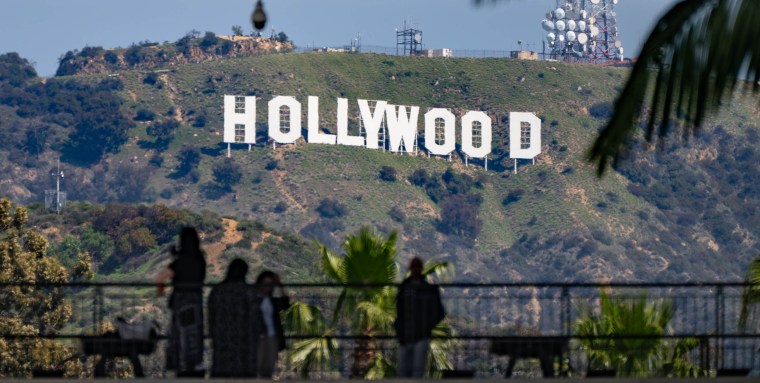
On May 4, Trump announced a 100% tariff on movies produced outside the U.S., writing on Truth Social that the film industry was “DYING a very fast death.”
Trump wrote that other countries are luring filmmakers and movie production out of the U.S., calling Hollywood “devastated.” He added that he considers this a “National Security threat.”
After the announcement, the Motion Picture Association met with prominent studio leaders to strategize around the potential film tariff. No tariff has been officially implemented at this time.
Becca Wood is a news and trending reporter for TODAY Digital based in New York City. Follow her on Instagram and Twitter.

